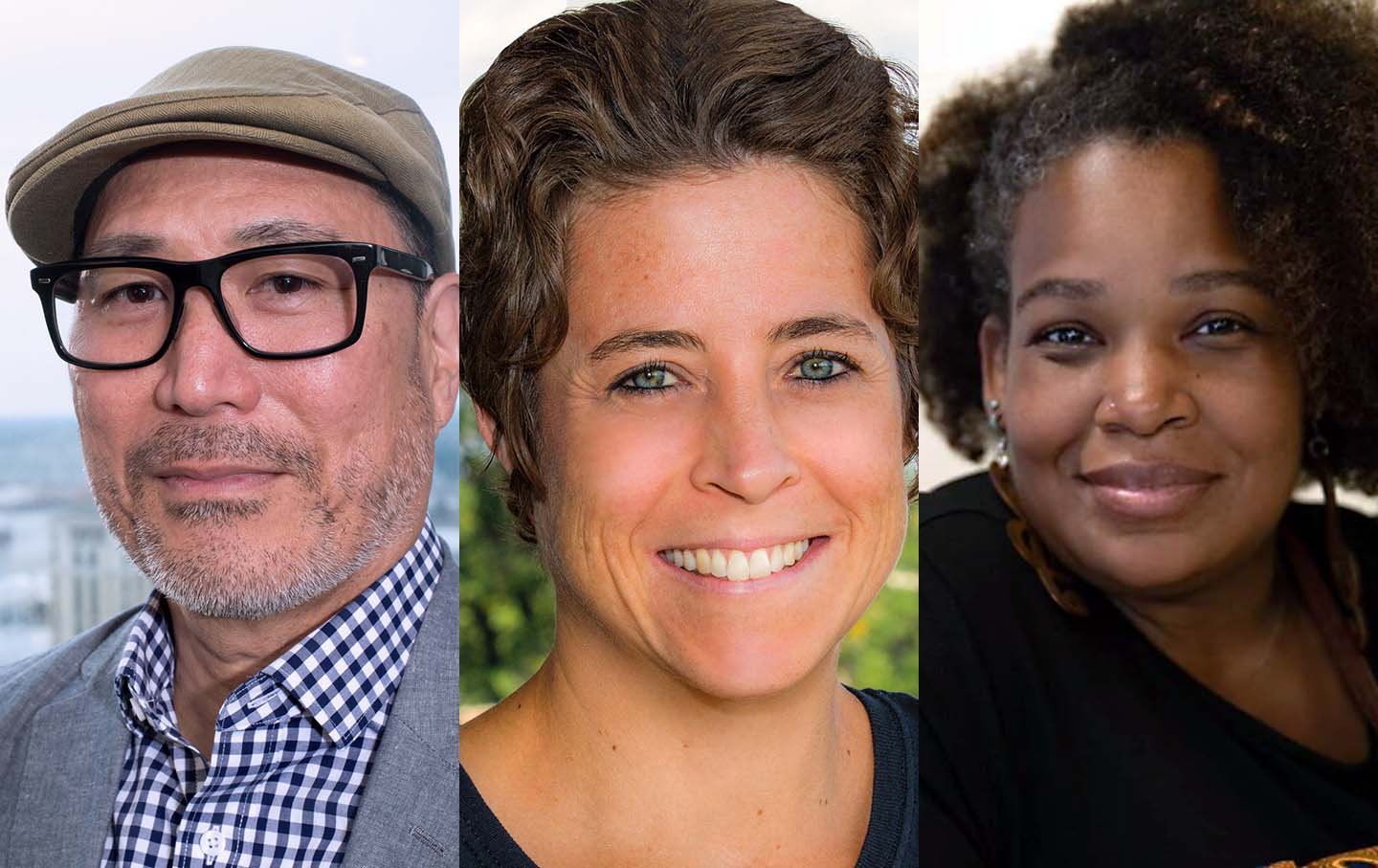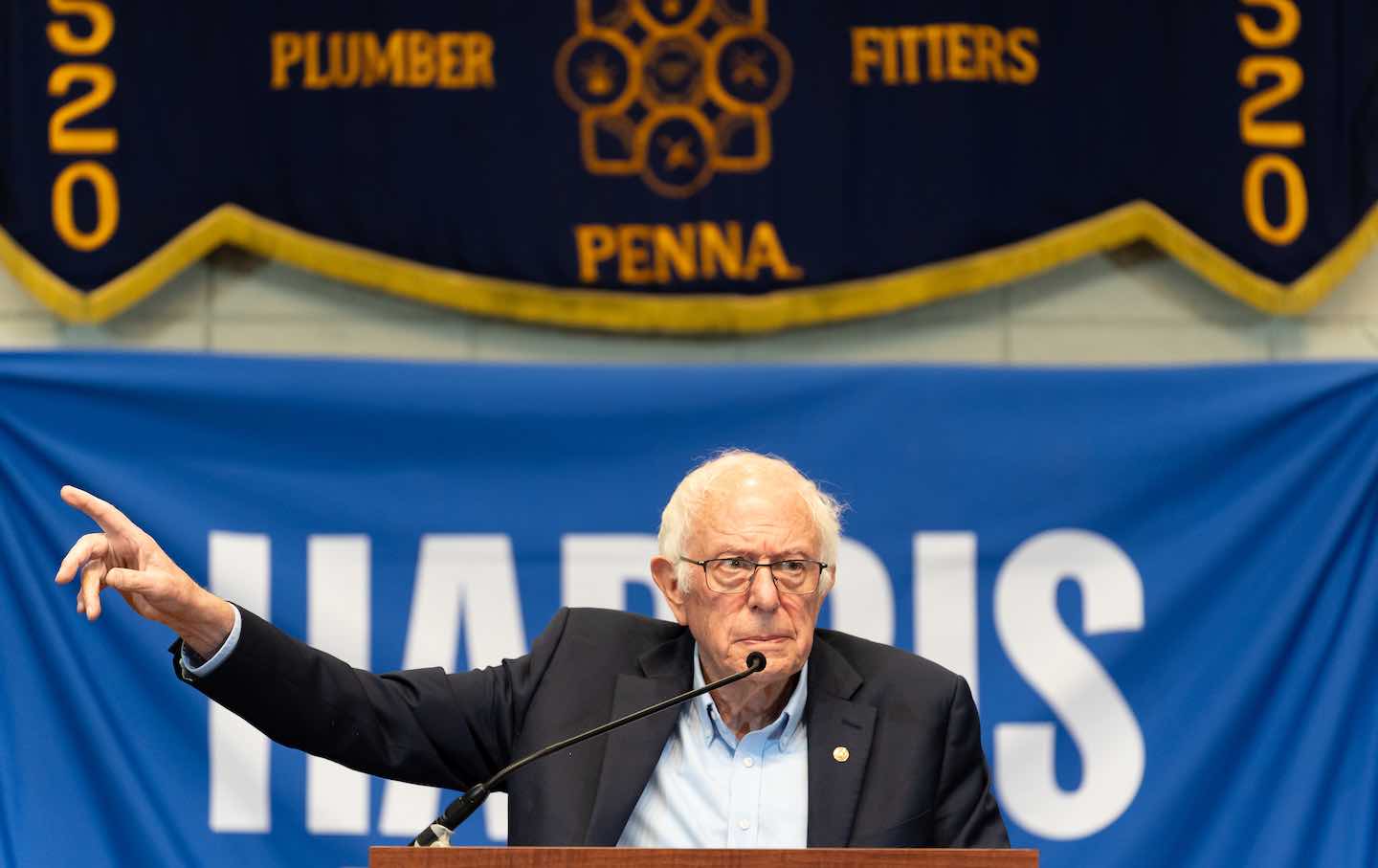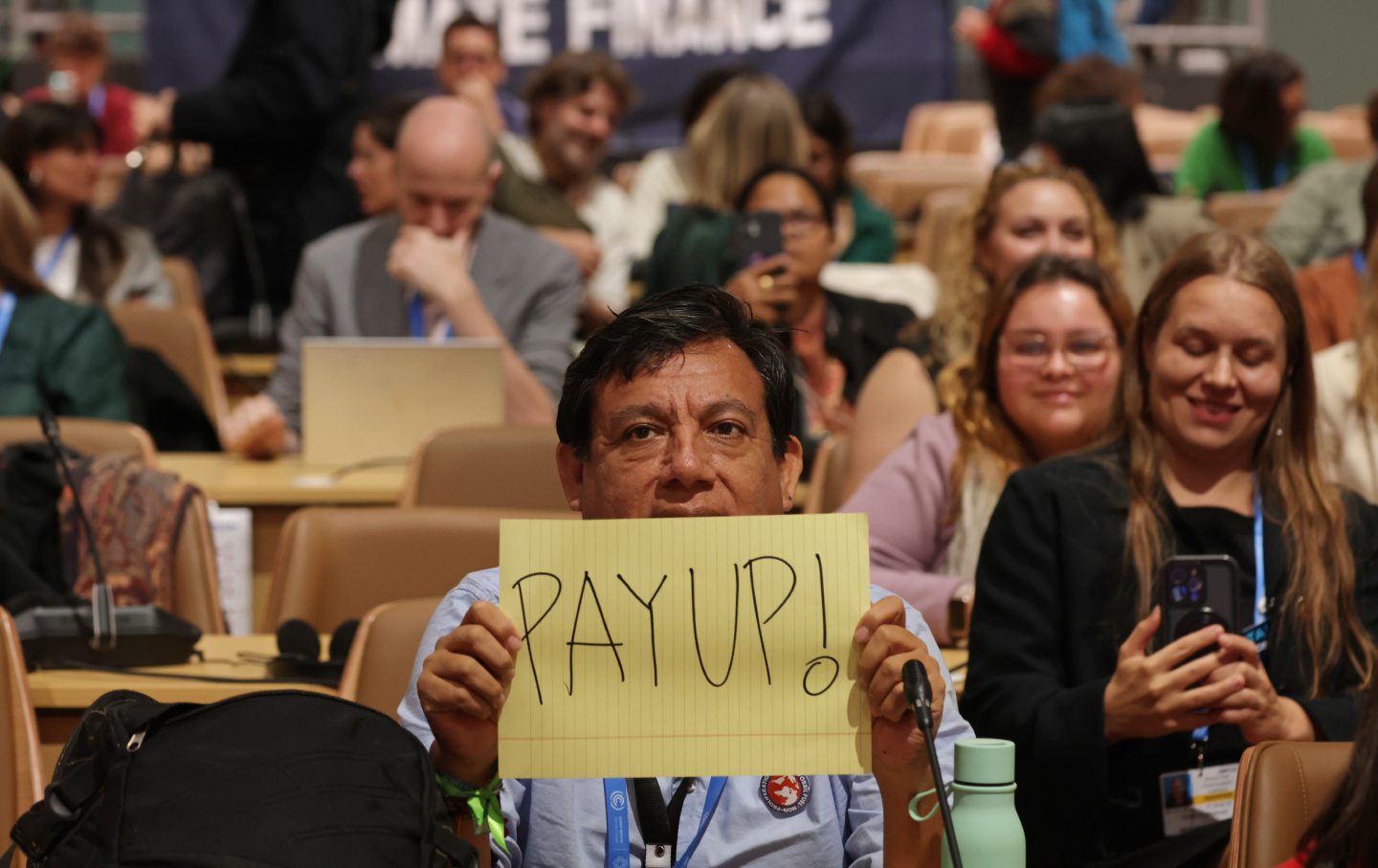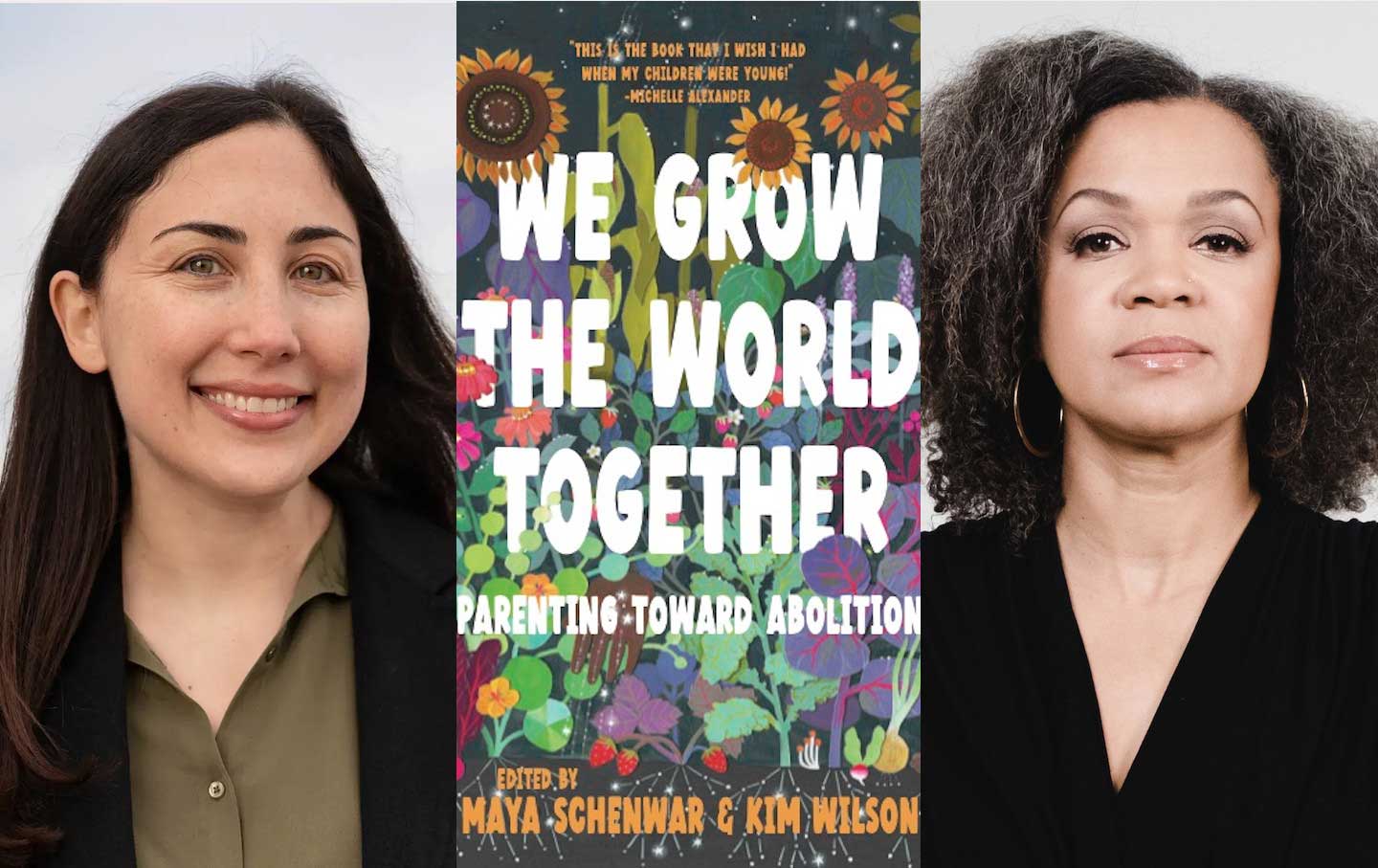
Scot Nakagawa, Maria J. Stephan, Sala Cyril.
(Supplied, Katy Tartakoff, Naomi Ishisaka)
Democracy requires that we make political choices free from bullying, intimidation, or threats of violence. So it is a problem when rates of political violence go up—as they have in the United States. Reuters reports that we’ve seen some 213 cases, including 39 fatalities in the US just since January 6, 2021. That’s more than we’ve seen in decades. Women, people of color, Muslims, Jews, and LGBTQ people are among the most vulnerable, but the group suffering the biggest increase in reported incidents are conservatives who are perceived to be out of sync with the pro-Trump MAGA line. Most Americans oppose violence in all contexts, but violence also threatens every other effort to strengthen democracy and freedom. My co-interviewer, Scot Nakagawa, is the director of the 22nd Century Initiative. We spoke with Sala Cyril, the interim executive director of Visions Change Win, an organization that focuses on community safety, and Maria J. Stephan, the chief organizer of the Horizons Project and coauthor (with Erica Chenoweth) of Why Civil Resistance Works: The Strategic Logic of Nonviolent Conflict.
—Laura Flanders
Laura Flanders: When we talk about political violence, what are we actually talking about?
Maria J. Stephan: Political violence includes threats, intimidation, acts of physical violence that are used with a political motivation to achieve a political goal or to assert political power over another group. We know that in the United States the preponderance of acts of political violence are being committed by the far right, with a smaller number of incidents being committed by the far left. No one is immune from being targeted, although we know that historically marginalized communities—Black Americans, brown Americans, LGBTQ—are being disproportionately targeted with political violence in this moment, but also a number of conservatives, including those that aren’t toeing the MAGA line.
Scot Nakagawa: And a lot of people who are unaffiliated with either political party but who are trying to fulfill the duties of jobs that are related to elections, etc. People who are considered to be functionaries of government who are also viewed in opposition to the MAGA coalition, is that right?
MJS: I’ve been in attendance with secretaries of state, former lieutenant governors. They all have stories of themselves or their families being on the receiving end of political violence. I’ve also heard about conservative librarians who, because they refuse to go along with the book-banning movement, they are being targeted with threats, intimidation.
LF: Sala, it’s not like political violence is a brand-new occurrence in this country. Some groups have been subject to it for centuries. I would love to get a sense of what you do on a daily basis—what’s changed and what hasn’t changed in this moment?
Sala Cyril: Unfortunately, this is not new, and we have been experiencing this level of political violence for decades and centuries. But one of the things that we do at Vision Change Win is we offer organizational development, community safety support, and security support to organizations, activists, leaders, and people that are concerned about political violence in retribution for the work that they may be doing. We believe that creating community safety and security is everyone’s responsibility. We come from a history and a legacy of organizations like the Young Lords, the Black Panther Party that created community safety support and techniques for people to protect themselves. A lot of our legacy came out of New York City–specific safety and security lineage groups like the Malcolm X Grassroots Movement, The Audre Lorde Project, The Coalition Against Police Brutality.
LF: The groups that you’ve mentioned and the history that you’ve described speak to a desire to keep certain people intimidated and out of our process. Is that what you’ve seen?
SC: Definitely. My mother was a member of the Black Panther Party. She was one of the cofounders of the Free Breakfast Program, which was declared one of the highest threats to national security. The state thought that, but the kinds of threats that regular people trying to get their children fed faced were high. The kinds of threats that we see regular everyday people face, people being killed, the kinds of work that the Malcolm X Grassroots Movement does is to support groups and people that have been identified as victims of police brutality. The families are being attacked by not only the state but also the right.
SN: What specific guidance can we offer people who are supporting someone who has been threatened or attacked, or who have been threatened or attacked themselves?
SC: The kinds of things that we teach are basic de-escalation techniques, basic safety planning, and digital security support. A lot of threats happen digitally. Not just doxing but hacking and swatting and things that put people in physical danger. A lot of times the groups need organizational-capacity support to ensure that they don’t crumble in the face of threats that come from the right. And overall shifting the paradigm that security and safety is this white, masculine, patriarchal thing. A way to think about moving through the world and creating networks that build resiliency and allow people to lean on each other.
LF: That’s a lot of work for we the people. Isn’t there a role for government in all this? What demands can we make of government to step in here?
MJS: There are certainly litigation strategies that can be deployed particularly against far-right groups. Is that kind of support being provided? Are people being challenged within their parties when they are actively endorsing white supremacist groups or they’re actively supporting violence targeting particular groups in society? Is there that condemnation? I think there can certainly be things that the government can do from a policy perspective. But some state governments in this country are in the hands of anti-democratic forces right now. They’re in the hands of MAGA folks. If you’re hoping to use those regular advocacy or litigation channels, it may not be effective. That’s why we need communities, and communities across this country are doing it. They are going after folks that are targeting gay pride parades through various organizations with religious leaders and veterans groups and businesses, who have been involved in kind of anti–white supremacist campaigns. In Enid, Oklahoma, one of their city council members was Judd Blevins, who was found to be marching with the Neo-Nazis in Charlottesville in 2017. The community mobilized. They got a recall election. They ousted him. And that’s how we win. We organize, we plan, and we use methods they’re not prepared for and that will disarm them.
LF: Sala, you started by saying this is personal for you because your mother was targeted, and yet the reaction of you and your sister has been to become very visible, very leading activists in exactly this area. What turned it into inspiration for you and stimulus for you to get involved, as opposed to get your head down, get out of this and go find somewhere out of view?
SC: As a child of a [Black] Panther, I saw inspiration in every action. Even when I saw my mother’s friends being jailed for long periods of time or even killed by police terror. The kinds of stories that came out of their work, the kinds of inspiration, the kinds of movement and changes that they were able to make was so inspiring. Not just that, but a lot of those folks, it’s my family, right? I was raised with the Panther Party as my family, a lot of those folks went on to continue fighting against terror of the state and building community. And I wanted to be a part of that.
LF: That goes back to storytelling. Maria, you have written extensively covering inspiring stories of civil disobedience in the face of life-threatening violence in this country and internationally.
MJS: I’ve spent a good chunk of the past quarter century working with and writing about movements around the world that have challenged various forms of authoritarianism. What we know is that movements succeed when they attract mass diverse participation. You need people who are ideologically different, who are politically different, who are laborers, who are professionals, who are young people. We know that movements are able to tap into a diverse array of tactics. They don’t just keep doing the same thing, they don’t just go out into the street and demonstrate or march. They do tactics like walkouts. They do pressure tactics like consumer boycotts or other acts of noncooperation. Strikes, which have been one of the most powerful general strikes, whether it was in Chile, whether it was in South Africa, other countries, have been the most powerful tactics to push back against authoritarianism. So what successful nonviolent resistance movements do is they systematically pull those pillars away from an autocrat so that they’re like emperors with no clothes. They no longer have their moral and material support.








